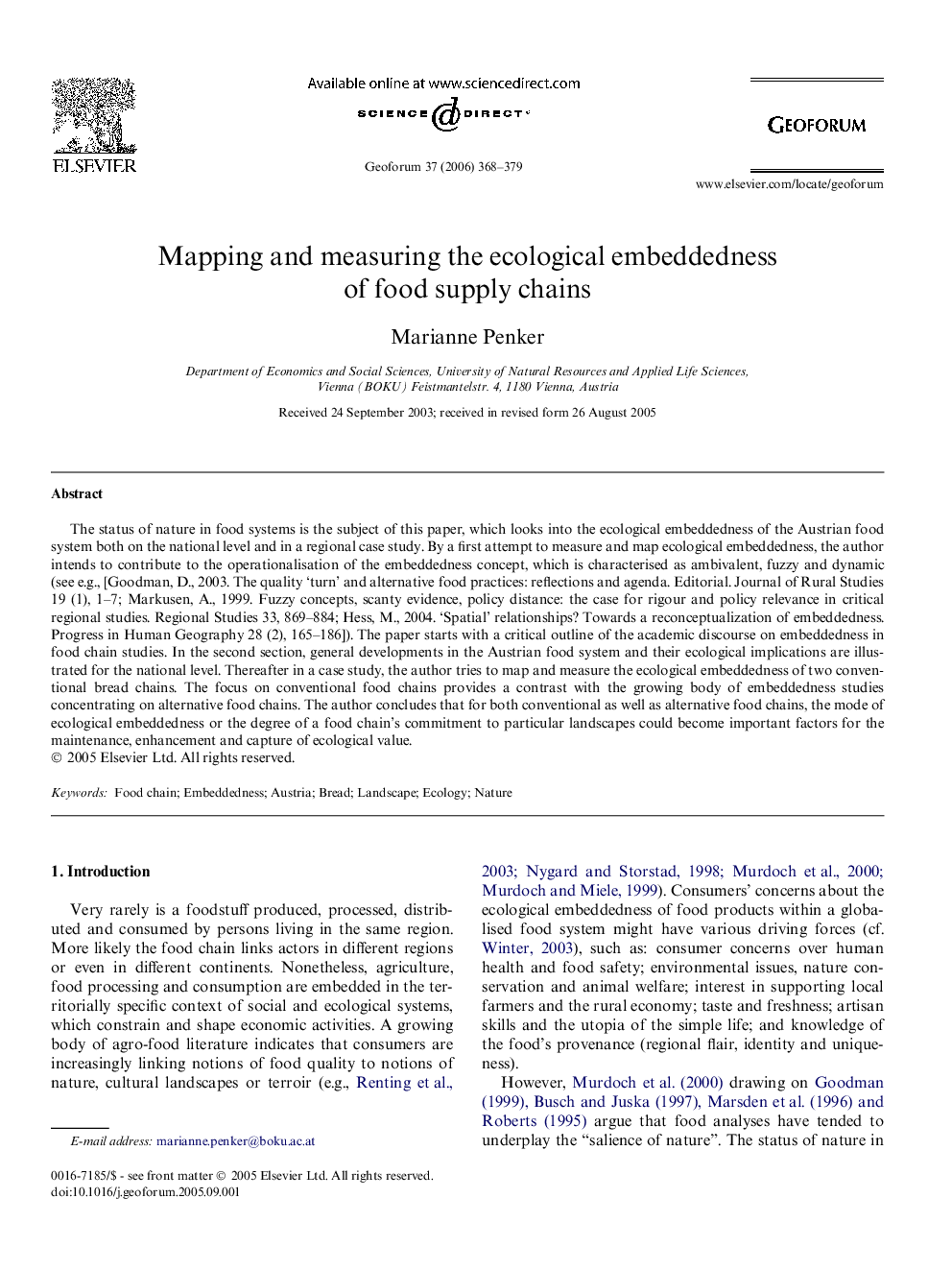| Article ID | Journal | Published Year | Pages | File Type |
|---|---|---|---|---|
| 5075210 | Geoforum | 2006 | 12 Pages |
Abstract
The status of nature in food systems is the subject of this paper, which looks into the ecological embeddedness of the Austrian food system both on the national level and in a regional case study. By a first attempt to measure and map ecological embeddedness, the author intends to contribute to the operationalisation of the embeddedness concept, which is characterised as ambivalent, fuzzy and dynamic (see e.g., [Goodman, D., 2003. The quality 'turn' and alternative food practices: reflections and agenda. Editorial. Journal of Rural Studies 19 (1), 1-7; Markusen, A., 1999. Fuzzy concepts, scanty evidence, policy distance: the case for rigour and policy relevance in critical regional studies. Regional Studies 33, 869-884; Hess, M., 2004. 'Spatial' relationships? Towards a reconceptualization of embeddedness. Progress in Human Geography 28 (2), 165-186]). The paper starts with a critical outline of the academic discourse on embeddedness in food chain studies. In the second section, general developments in the Austrian food system and their ecological implications are illustrated for the national level. Thereafter in a case study, the author tries to map and measure the ecological embeddedness of two conventional bread chains. The focus on conventional food chains provides a contrast with the growing body of embeddedness studies concentrating on alternative food chains. The author concludes that for both conventional as well as alternative food chains, the mode of ecological embeddedness or the degree of a food chain's commitment to particular landscapes could become important factors for the maintenance, enhancement and capture of ecological value.
Related Topics
Social Sciences and Humanities
Economics, Econometrics and Finance
Economics and Econometrics
Authors
Marianne Penker,
